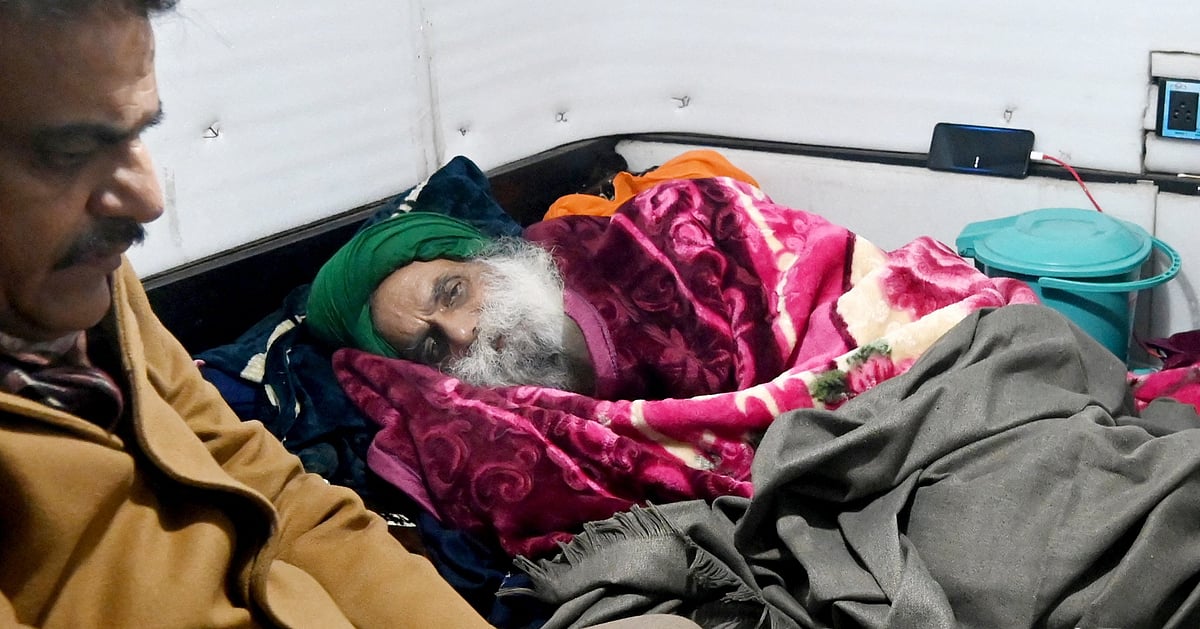 |
|
The ongoing hunger strike by farmer leader Swarn Singh Dallewal has intensified the political pressure on the Indian government. Dallewal, a prominent figure in the farmers' movement, began his fast demanding a legal guarantee for Minimum Support Price (MSP) for agricultural produce. His refusal to end his fast unless the central government, specifically Prime Minister Narendra Modi, meets his demands underscores the seriousness of the farmers' concerns and the deep-seated dissatisfaction with current policies. The three-minute video message released on Friday serves as a clear and concise declaration of his steadfast commitment to his cause, emphasizing the urgency and weight of the farmers' plight. The demand is not merely for an assurance, but for a concrete and legally binding commitment, signifying a significant demand for systemic change and addressing the vulnerabilities inherent in the agricultural sector.
The choice of addressing Prime Minister Modi directly, rather than negotiating with the Akal Takht Jathedar (the highest religious authority of the Sikhs), highlights the political dimension of the conflict. It suggests that Dallewal believes a direct intervention by the highest political authority is necessary to resolve the issue, implying a perceived inadequacy in the current channels of communication and negotiation. This strategic move places the responsibility firmly on the Prime Minister's shoulders, escalating the pressure on the central government to address the farmers’ demands swiftly and decisively. The move also underscores the deep distrust amongst farmers regarding the efficacy of negotiations through intermediary channels.
The hunger strike, a potent symbol of protest and perseverance, has garnered considerable attention, placing the farmers' struggle back in the national spotlight. Dallewal’s age, seventy years, further amplifies the gravity of the situation, highlighting the desperation and long-term commitment of the farmers involved. The health risks associated with prolonged fasting are substantial, adding to the emotional appeal of his protest, thereby increasing public sympathy and creating additional pressure on the government to respond positively to the farmer's demands. The ongoing situation highlights the complex interplay between agrarian distress, government policies, and the political dynamics within India.
The demand for a legal guarantee for MSP is a critical element in understanding the farmers' grievances. Farmers argue that the current system leaves them vulnerable to market fluctuations and the exploitation by intermediaries, leading to financial instability and impacting their livelihoods. A legal guarantee, they contend, would provide a safety net, ensuring a minimum price for their produce regardless of market conditions. This would provide some much-needed stability and security for farmers, addressing the core concerns that have fueled the numerous protests and agitations over the years. The absence of such a guarantee remains a significant point of contention between the farmers and the government, further emphasizing the need for a decisive and comprehensive solution.
The ongoing standoff showcases the complexities of navigating agricultural policy in a country like India. It highlights the need for a nuanced understanding of the diverse needs and challenges facing farmers across different regions and the necessity for policies that are both effective and equitable. The government's response will be crucial in determining the future trajectory of the farmers' movement and the overall stability of the agricultural sector. A failure to address the underlying issues could lead to further escalation of protests and heighten social and political tensions. Therefore, a swift and decisive response that genuinely addresses the farmers' demands is not just politically expedient but also essential for the long-term stability and well-being of the Indian agricultural sector.
The implications of this situation extend far beyond the immediate concerns of the farmers themselves. The economic viability of agriculture significantly impacts the livelihoods of a substantial portion of the Indian population. The ripple effect of agricultural distress can be felt across various sectors of the economy, leading to broader socio-economic consequences. Therefore, the government's response must be viewed within the broader context of its impact on the national economy and social stability. This complex interplay of economic, social, and political factors underlines the significance of the ongoing negotiations and the necessity for a comprehensive and sustainable solution that addresses the core concerns of the farmers while maintaining economic and social stability.
Finally, Dallewal's hunger strike, while a dramatic protest, serves as a powerful reminder of the persistent challenges faced by farmers in India. It highlights the ongoing need for dialogue, compromise, and a holistic approach to agricultural policy that ensures the welfare and prosperity of those who are essential to feeding the nation. The focus should not merely be on immediate solutions but on long-term sustainable strategies that address the systemic issues plaguing the agricultural sector, promoting fair prices, access to resources, and ensuring the dignity and livelihood of India's farmers.
Source: Meet Modi instead of Akal Takht Jathedar if you want me to end fast: Dallewal to Punjab BJP
